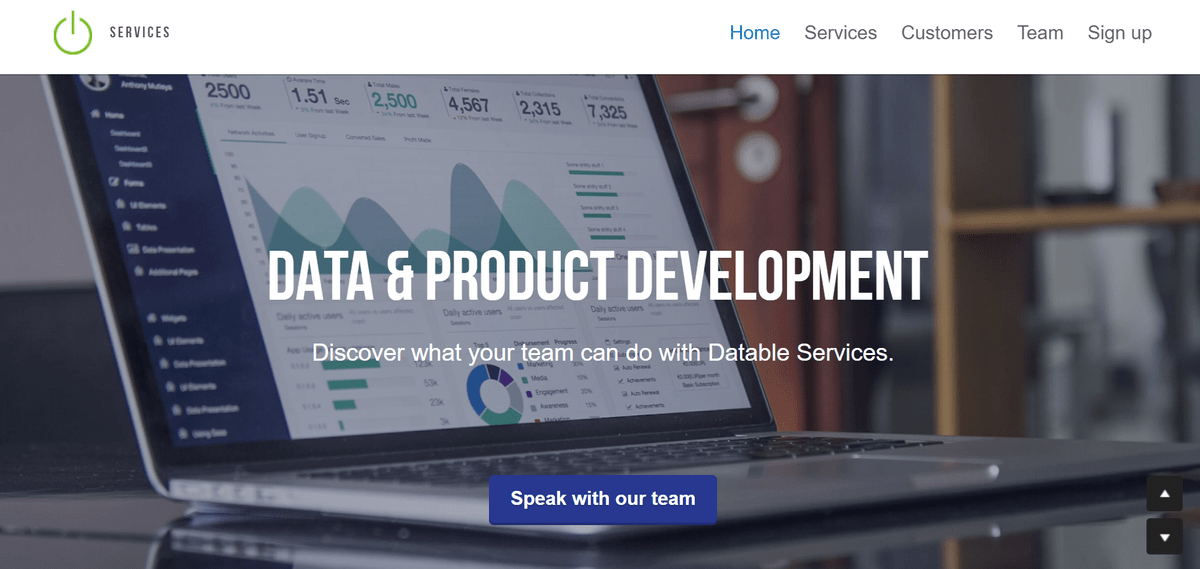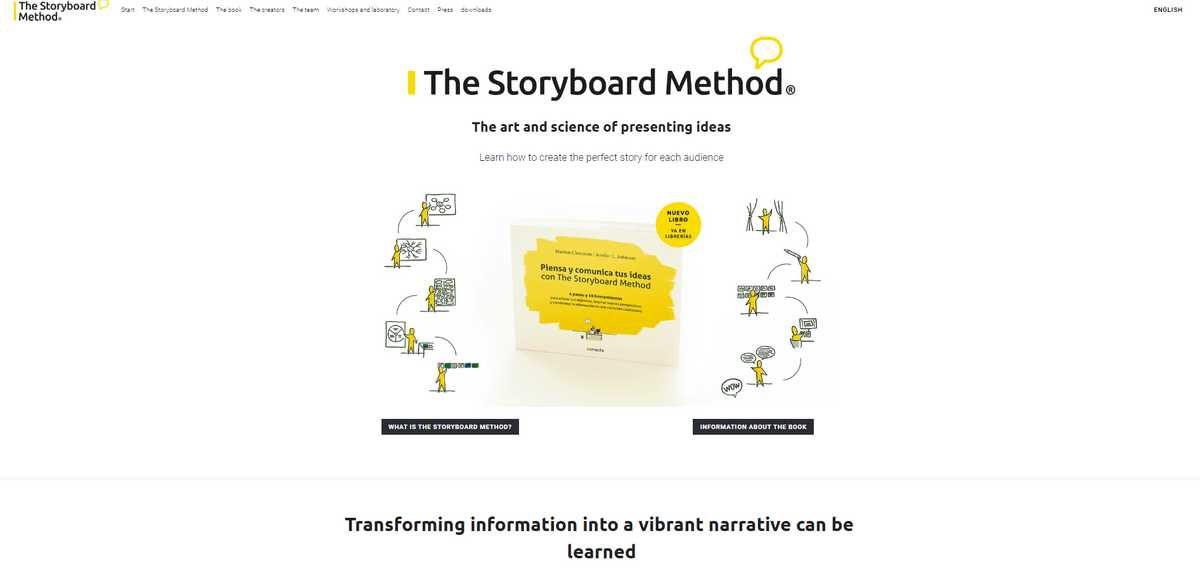Step Up Your Digital Business With Effective Ecommerce Accounting
Step Up Your Digital Business With Effective Ecommerce Accounting

Practical ecommerce accounting is essential for your digital business to thrive in the competitive online marketplace. With the right strategies and tools, you can streamline your accounting process and gain valuable insights into your financial performance. In this guide to ecommerce accounting, we will explore what it is, why it is crucial for your business, and how Strikingly can help simplify and enhance your ecommerce accounting procedures. By implementing a solid ecommerce accounting strategy, you can optimize your operations, make informed business decisions, and take your digital business to the next level.
What is Ecommerce Accounting
Ecommerce accounting involves managing and tracking financial transactions specific to online businesses. Unlike traditional brick-and-mortar stores, digital companies have unique challenges when it comes to accounting. Accurate record-keeping of sales, expenses, inventory, and taxes is crucial for legal compliance and financial stability.
By effectively managing your guide to ecommerce accounting, you can:
1. Ensure compliance with tax regulations. Digital businesses are subject to specific tax obligations that vary by jurisdiction. Properly tracking sales and expenses lets you calculate accurate tax liabilities and file timely returns.
2. Make informed business decisions. Detailed financial data provides insights into revenue streams, costs of goods sold (COGS), profitability margins, and customer behavior trends. These insights empower you to make data-driven decisions that drive growth.
3. Optimize inventory management. Tracking inventory levels helps prevent stockouts or overstocking situations that can impact cash flow or lead to lost sales opportunities.
How Strikingly Can Help Streamline Your Ecommerce Accounting Process
Strikingly offers a comprehensive website builder with built-in ecommerce functionality for small businesses and entrepreneurs looking to establish an online presence quickly.
With Strikingly's intuitive platform:
1. Seamless integration with popular accounting software. Strikingly integrates seamlessly with leading accounting software such as QuickBooks Online or Xero, allowing for easy synchronization of sales, expenses, and inventory data.
2. Automated sales tracking. Strikingly's ecommerce features automatically track sales and update your accounting records in real time. This eliminates the need for manual data entry and reduces the risk of errors.
3. Customizable reporting tools. Strikingly provides customizable reporting tools to generate financial reports tailored to your business needs. These reports provide valuable insights into revenue streams, customer behavior, and inventory management.
The Benefits of Implementing a Solid Ecommerce Accounting Strategy
Implementing a solid guide to ecommerce accounting offers numerous benefits for your digital business:
1. Enhanced financial visibility. By accurately tracking sales, expenses, and inventory, you clearly understand your financial position at any given time. This visibility enables you to identify areas for improvement and make informed decisions about resource allocation.
2. Improved tax compliance. Proper ecommerce accounting procedures allow you to calculate and report accurate tax liabilities easily. This helps prevent costly penalties or audits from tax authorities.
3. Streamlined operations. Practical ecommerce accounting streamlines inventory management, order fulfillment, and financial reporting. This allows you to focus on growing your business rather than getting bogged down by administrative tasks.
By leveraging Strikingly's ecommerce features and implementing a solid accounting strategy tailored to your digital business needs, you can optimize operations, gain valuable insights into your financial performance, and position yourself for long-term success in the competitive online marketplace.
Understanding What is Ecommerce Accounting
Image taken from Modern Life Seminars
Ecommerce accounting is a specialized field that focuses on online businesses' financial management and reporting. It involves tracking and recording all financial transactions related to buying and selling goods or services through an ecommerce platform. Its unique challenges and considerations set ecommerce accounting apart from traditional accounting.
Accurate Tracking
One key component of a solid guide to ecommerce accounting is accurately tracking sales and expenses. A digital business often generates sales through multiple channels, such as your website, online marketplaces, or social media platforms. It's crucial to have a system that can capture all these sales data accurately.
Accurate expense tracking is equally vital in an effective guide to ecommerce accounting. This includes the cost of goods sold and other expenses like shipping, advertising, and transaction fees charged by payment processors. Having a clear understanding of your expenses allows you to analyze profitability effectively.
Accurate sales and expense tracking enable you to generate reliable financial statements that reflect the proper financial health of your ecommerce business. These statements provide insights into revenue streams, profit margins, and overall performance.
Tracking with Strikingly
Strikingly can help streamline your ecommerce accounting process by providing easy-to-use tools for sales tracking and expense management. With Strikingly's integration capabilities, you can connect your ecommerce platform directly to your chosen accounting software, ensuring seamless data transfer between systems.
By utilizing Strikingly's reporting tools, you can gain valuable financial insights into your business operations. These reports allow you to analyze revenue streams from different channels, identify trends in customer behavior, and make informed decisions to drive growth.
Understanding ecommerce accounting is crucial for the success of your digital business. Accurate sales and expense tracking are essential components that enable you to generate reliable financial statements and make informed business decisions. With Strikingly's user-friendly features and integration capabilities, you can streamline your ecommerce accounting process and take your digital business to the next level. Start implementing a strong guide to ecommerce accounting today with Strikingly.
Setting Up Your Ecommerce Accounting System
Image taken from Datable App Services
Setting up a solid ecommerce accounting system is crucial for the success of your digital business. It ensures accurate financial tracking, simplifies tax compliance, and provides valuable insights for making business decisions. In this section, we will discuss the critical steps involved in setting up your ecommerce accounting system.
1. Choosing the Right Accounting Software for Your Digital Business
Selecting the right accounting software is essential to manage your ecommerce accounting processes effectively. Strikingly offers a user-friendly and comprehensive platform that can streamline your accounting tasks. With its intuitive interface and powerful features, Strikingly simplifies managing financial transactions, tracking sales, and generating reports.
2. Integrating Your Ecommerce Platform with Your Accounting Software
Integrating your ecommerce platform with your accounting software is crucial for seamless data synchronization. With Strikingly's integration capabilities, you can easily connect your online store to popular accounting software like QuickBooks or Xero. This integration allows automatic data transfer between platforms, eliminating manual data entry errors and saving valuable time.
3. Creating a Chart of Accounts Tailored to Your Ecommerce Business
A chart of accounts is vital to your ecommerce accounting system as it helps accurately categorize and track your financial transactions. When creating a chart of accounts for your digital business, consider specific statements related to ecommerce operations, such as sales revenue, shipping costs, advertising expenses, and inventory management. Strikingly provides customizable templates that can be tailored to fit the unique needs of your ecommerce business.
Setting up an effective guide to ecommerce accounting is essential for the success of any digital business. By choosing the right accounting software like Strikingly, integrating it with your ecommerce platform, and creating a tailored chart of accounts, you can streamline your accounting processes, ensure accurate financial tracking, and make informed business decisions. Start implementing a strong ecommerce accounting strategy today to take your digital business to the next level.
Tracking Sales and Revenue
Image taken from Wooddy
To effectively manage your ecommerce business, it is crucial to implement proper sales tracking techniques, monitor and analyze revenue streams, and utilize reporting tools for financial insights. This section will guide you through these essential steps.
1. Implementing Effective Sales Tracking Techniques
Implementing effective sales tracking techniques is vital for accurate financial reporting and analysis. One way to achieve this is by integrating your ecommerce platform with reliable accounting software like Strikingly. Strikingly offers seamless integration with popular ecommerce platforms, automatically allowing you to track sales data in real-time.
By setting up proper tracking mechanisms within your ecommerce platform and accounting software, you can capture important information such as order details, customer information, and payment methods. This enables you to record and categorize sales transactions accurately, improving the accuracy of your financial records.
2. Monitoring and Analyzing Revenue Streams
Monitoring and analyzing revenue streams is crucial for understanding the financial health of your ecommerce business. With Strikingly's reporting features, you can quickly generate detailed reports that provide insights into your revenue sources.
By regularly reviewing these reports, you can identify trends in customer behavior, evaluate the performance of different product lines or marketing campaigns, and make informed decisions about pricing strategies or inventory management. This helps optimize your revenue streams and maximize profitability.
3. Utilizing Reporting Tools for Financial Insights
Utilizing reporting tools is essential for gaining valuable financial insights to drive strategic decision-making in your ecommerce business. Strikingly's reporting features provide customizable dashboards that visualize key performance indicators (KPIs) such as sales growth, average order value, or customer acquisition cost.
These reports enable you to track the success of marketing initiatives or promotional campaigns while also identifying areas for improvement or cost-saving opportunities. By leveraging these insights from Strikingly's reporting tools, you can make data-driven decisions that contribute to the overall growth of your ecommerce business.
Effectively tracking sales and revenue is essential for the success of your ecommerce business. You can gain valuable financial insights that drive strategic decision-making and optimize your business operations by implementing effective sales tracking techniques, monitoring and analyzing revenue streams, and utilizing reporting tools like Strikingly. Start implementing a strong ecommerce accounting strategy today to take your digital business to the next level.
Managing Inventory and Cost of Goods Sold (COGS)
Managing inventory and accurately calculating the cost of goods sold (COGS) are crucial aspects of ecommerce accounting. By implementing effective strategies for tracking inventory, calculating COGS, and optimizing inventory management, digital businesses can ensure efficient operations and financial accuracy.
Strategies for Tracking Inventory in an Ecommerce Setting
Tracking inventory in an ecommerce setting requires a systematic approach to ensure accurate records and efficient order fulfillment. One strategy is to utilize inventory management software, such as Strikingly's ecommerce platform, which allows businesses to track inventory levels in real time. This software automatically updates stock quantities as sales are made, providing a seamless tracking system.
Another strategy is to implement barcode scanning technology. By assigning unique barcodes to each product, businesses can easily track their inventory levels by scanning items in and out of their storage facilities. This streamlines the tracking process and reduces the risk of errors associated with manual data entry.
Lastly, conducting regular physical counts of inventory is essential for maintaining accuracy. Discrepancies can be identified and addressed promptly by comparing physical counts with recorded quantities in the accounting system.
Calculating and Recording the Cost of Goods Sold
Calculating the cost of goods sold (COGS) is necessary for determining the profitability of each sale made by an ecommerce business. To calculate COGS accurately, companies need to consider several factors:
1. Direct Costs. These include purchasing or manufacturing products, packaging materials, shipping fees, and other expenses directly associated with producing or acquiring goods.
2. Indirect Costs. Indirect costs refer to expenses that cannot be directly linked to a specific product but still contribute to its production or acquisition. Examples include rent for storage facilities or utilities used during production processes.
3. Period Costs. Period costs are not directly related to production but need to be accounted for when calculating COGS. These costs include salaries, marketing expenses, and administrative overhead.
Once the various costs are identified, businesses can calculate COGS by subtracting the value of ending inventory from the sum of beginning inventory and purchases made during a specific period.
Recording COGS accurately is essential for financial reporting purposes. By adequately documenting these costs, businesses can clearly understand their profitability and make informed pricing and inventory management decisions.
Optimizing Inventory Management for Efficient Operations
Efficient inventory management is crucial for ecommerce businesses to operate smoothly and meet customer demands effectively. Here are some strategies to optimize inventory management:
1. Forecasting. Utilize data analytics tools to forecast the market accurately. This allows businesses to anticipate customer needs and adjust inventory levels accordingly, minimizing excess stock or stockouts.
2. Just-In-Time (JIT) Inventory. Implement JIT inventory practices where products are ordered or manufactured only after a confirmed sale or an anticipated demand. This reduces storage costs and minimizes the risk of obsolete inventory.
3. Supplier Relationships. Establish strong relationships with suppliers to ensure timely deliveries and negotiate favorable terms such as discounts or consignment arrangements. This helps maintain optimal inventory levels while reducing carrying costs.
By implementing these strategies, ecommerce businesses can streamline their operations, reduce costs associated with excess inventory, and improve overall efficiency in meeting customer demands.
Streamlining Tax Compliance in Ecommerce
Image taken from The Storyboard Method
In the world of effective ecommerce accounting guide, tax compliance is a crucial aspect that digital businesses must navigate. Understanding the tax obligations for your online business is essential to ensure you meet all legal requirements and avoid any penalties or fines.
1. Understanding the Tax Obligations for Digital Businesses
Digital businesses are subject to various tax obligations, including sales, income, and international taxes. Sales tax is significant for ecommerce businesses as it varies depending on the location of your customers. Understanding which states or countries require you to collect and remit sales tax is crucial.
To comply with sales tax regulations, many digital businesses use automation tools like Strikingly's ecommerce accounting features. These tools can automatically calculate the appropriate sales tax based on customer location and integrate with your online store to generate accurate reports for easy filing.
2. Automating Sales Tax Calculations and Reporting
One of the biggest challenges in ecommerce accounting guide is accurately calculating and reporting sales tax. With varying rates across different jurisdictions, manually tracking and calculating sales tax can be time-consuming and prone to errors.
Strikingly simplifies this process by automating sales tax calculations and reporting. By integrating your ecommerce platform with Strikingly's accounting software, you can ensure accurate estimates based on customer location data. This automation saves you time, reduces errors, and ensures compliance with sales tax regulations.
3. Working with a Tax Professional for Ecommerce Compliance
While automation tools like Strikingly can streamline your ecommerce accounting guides, working with a qualified tax professional specializing in ecommerce taxation is still important. They can help ensure that you are meeting all relevant legal requirements and provide guidance on complex issues such as international taxes or nexus determinations.
A knowledgeable tax professional can also help you optimize your business structure from a taxation perspective, potentially saving you money in the long run. They can assist with strategic planning, tax credits, and deductions specific to ecommerce businesses.
By combining the power of automation tools like Strikingly with the expertise of a tax professional, you can streamline your tax compliance process and focus on growing your digital business.
Analyzing Financial Performance and Growth
Image taken from Vencat Capital
Analyzing the financial performance and growth of your ecommerce business is crucial for making informed decisions and identifying opportunities for improvement. Understanding key performance indicators (KPIs), analyzing financial statements, and using financial data effectively can drive growth and success in your digital business.
Key Performance Indicators for Ecommerce Businesses
Key performance indicators (KPIs) are essential metrics that help you measure the success of your ecommerce business. These indicators provide valuable insights into various aspects of your operations, allowing you to identify areas for improvement and track progress over time.
Some essential KPIs for ecommerce businesses include:
1. Conversion Rate. This metric measures the percentage of website visitors who make a purchase. A high conversion rate indicates that your website effectively converts visitors into customers.
2. Average Order Value (AOV). AOV represents the average amount spent by customers on each order. Increasing this metric can lead to higher revenue per customer.
3. Customer Lifetime Value (CLTV). CLTV measures the total value a customer brings to your business over their lifetime as a customer. Understanding CLTV helps you prioritize customer retention strategies.
4. Customer Acquisition Cost (CAC). CAC calculates how much it costs to acquire a new customer. Keeping this metric low ensures efficient use of resources in acquiring new customers.
5. Return on Advertising Spend (ROAS). ROAS quantifies the effectiveness of your advertising campaigns by measuring the revenue generated compared to the amount spent on advertising.
By regularly monitoring these KPIs, you can gain valuable insights into how well your ecommerce business is performing and make data-driven decisions to optimize growth.
Analyzing Financial Statements to Assess Growth Opportunities
Financial statements provide a comprehensive view of your ecommerce business's financial health and performance over a specific period. Analyzing these statements allows you to identify trends, spot potential issues, and uncover growth opportunities.
The three primary financial statements you should analyze are:
1. Income Statement. Also known as the profit and loss statement, this statement summarizes your revenue, expenses, and profit or loss over a specific period. It helps you understand your business's profitability and identify areas where costs can be reduced or revenue can be increased.
2. Balance Sheet. The balance sheet provides a snapshot of your ecommerce business's financial position at a specific time. It shows your assets, liabilities, and equity, enabling you to assess your business's liquidity and solvency.
3. Cash Flow Statement. This statement tracks the inflows and outflows of cash within your ecommerce business. It helps you understand how money is generated and used, allowing you to manage cash flow effectively and make informed decisions about investments or financing.
By analyzing these financial statements regularly, you can identify trends in revenue growth, monitor expenses, evaluate profitability, and pinpoint areas for improvement or investment.
Using Financial Data to Make Informed Business Decisions
Financial data is a powerful tool that can guide your decision-making process as an ecommerce business owner. By leveraging this data effectively, you can make informed decisions that drive growth and improve overall performance.
One way to use financial data is by conducting thorough cost-benefit analyses for potential investments or projects. You can determine whether an investment is financially viable by comparing the expected costs with the anticipated benefits or returns.
Financial data also allows you to evaluate pricing strategies by analyzing margins and profitability on different products or services. By understanding a ecommerce accounting guide together with the impact of price changes on revenue and profit margins, you can optimize pricing strategies for maximum profitability.
Furthermore, financial data helps identify areas where operational efficiencies can be achieved. By analyzing an effective ecommerce accounting guide and expenses across different departments within your business, you can identify cost-saving opportunities without compromising quality or customer experience.
Analyzing the financial performance and growth of your ecommerce business is crucial for making informed decisions and driving success. By understanding key performance indicators, analyzing financial statements, and leveraging financial data effectively, you can optimize your operations, identify growth opportunities, and achieve long-term success in the digital marketplace.
Start Your Ecommerce Accounting Journey Wit
Image taken from The Designer's Squad
Implementing a solid ecommerce accounting guide is crucial for the success and growth of your digital business. You can make informed decisions and optimize your operations by accurately tracking sales, expenses, inventory, and taxes. Strikingly can simplify and enhance your ecommerce accounting process by providing user-friendly tools and integration options.
Strikingly offers a range of features that can streamline your ecommerce accounting guide. With its integration capabilities, you can seamlessly connect your ecommerce platform with accounting software. This ensures that all sales transactions are automatically recorded in your accounting system, eliminating the need for manual data entry.
By following these steps and utilizing Strikingly's features, you can take your digital business to the next level with practical ecommerce accounting guide.
Curious for more about business websites? Chat with us today!






